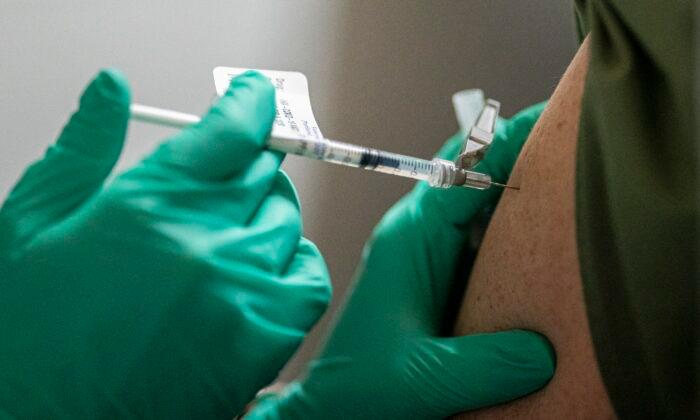Dozens of health care clinics in Oregon lost workers because of the COVID-19 vaccine mandate imposed by the state’s health agency, according to a new study.
About half of clinics that filled out surveys reported losing workers. The majority of those reporting the loss of employees are in rural areas.
“Oregon’s COVID-19 vaccination mandate increased health care personnel vaccination rates, yet amplified staffing challenges with disproportionate impacts in rural areas,” Dr. Brigit Hatch, a professor at Oregon Health & Science University, and her co-workers said.
Oregon Gov. Tina Kotek, a Democrat, and the Oregon Health Authority didn’t respond to requests for comment.
Brown claimed that forcing workers to get vaccinated would help ensure there were enough workers to treat patients.
The vaccines never prevented infection or transmission, and data at the time showed that the protection bestowed by the vaccines was waning over time, soon prompting federal authorities to authorize boosters.
“The Delta variant is causing a surge in unvaccinated cases and vaccine breakthrough cases. This rule is necessary to help control COVID-19, protect patients, and to protect the state’s health care workforce,” the authority said at the time.
“OAR 333-019-1010 is now being suspended, because immunity from the primary series is known to wane over time, such that 2 booster vaccinations have since been recommended for most persons. Moreover, the virus that causes COVID-19 has mutated such that the original series provides little long-term protection against infection by currently circulating strains.
“Finally, at this point most people have been infected by the virus (94% by one estimate), giving survivors a degree of immunity at least equivalent to that provided by the original vaccination series for some period of time,” the agency said at the time.
More on Study
Hatch and her co-authors created a survey and sent it to staffers at primary care clinics across the state.Staffers from 80 clinics across 28 counties, including 38 clinics in rural areas and 42 in urban areas, completed the survey.
Survey questions included whether the clinic had lost workers through termination or resignation and the level of impact the mandate had had on staffing at the clinic.
More than half, or 52.6 percent, of the rural clinics lost jobs due to the mandate, according to the survey results. About 4 in 10 clinics in urban areas lost jobs due to the vaccination requirements. In total, 37 of the clinics lost jobs due to the mandate.
About 45 percent of rural clinics, and 21 percent of the urban clinics, said the overall impact on staffing was significant or very significant. About a third of the clinics said the impact was minor and the rest assessed the mandate as having no impact.
“It has required those of us who remain to work harder, more hours, and try to cover for those who were terminated. Feelings of overwork, stress, and burnout are very high,” one physician in a rural clinic told the researchers.
Another said: “The loss of our functional staff and the change in our work dynamic has affected the care that we provide our patients in a way that has negatively impacted not only our staff, hospital, patients, and morale, but the community as a whole. Living in a rural area, this has had a rippling effect that will not be easily recovered from.”
The mandate included exemptions for religious or medical reasons. Rural clinics were far more likely to have staffers who received exemptions, with 71 percent reporting at least one staff member with a waiver. That was compared to a third of urban clinics. Some of the staffers said they weren’t sure whether any exemptions were granted at their workplace.
A majority of the clinics were hiring before the mandate was put into place, including about a quarter that were hiring clinicians.
Some in Oregon had warned that the mandate would lead to fewer staff members. The Oregon Nurses Association said that some workers were so opposed to mandates that they would leave the profession due to the requirements.
Vaccination rates did improve with the mandate, with 60 percent of staffers reporting that the mandate prompted people to get vaccinated.
“That said, about half of clinics reported losing staff, which is problematic for an already strained healthcare system, especially for small clinics and those in rural areas,” the researchers said.
They suggested future mandates take into account the differences between urban and rural clinics and consider under what conditions exemptions are allowed.





